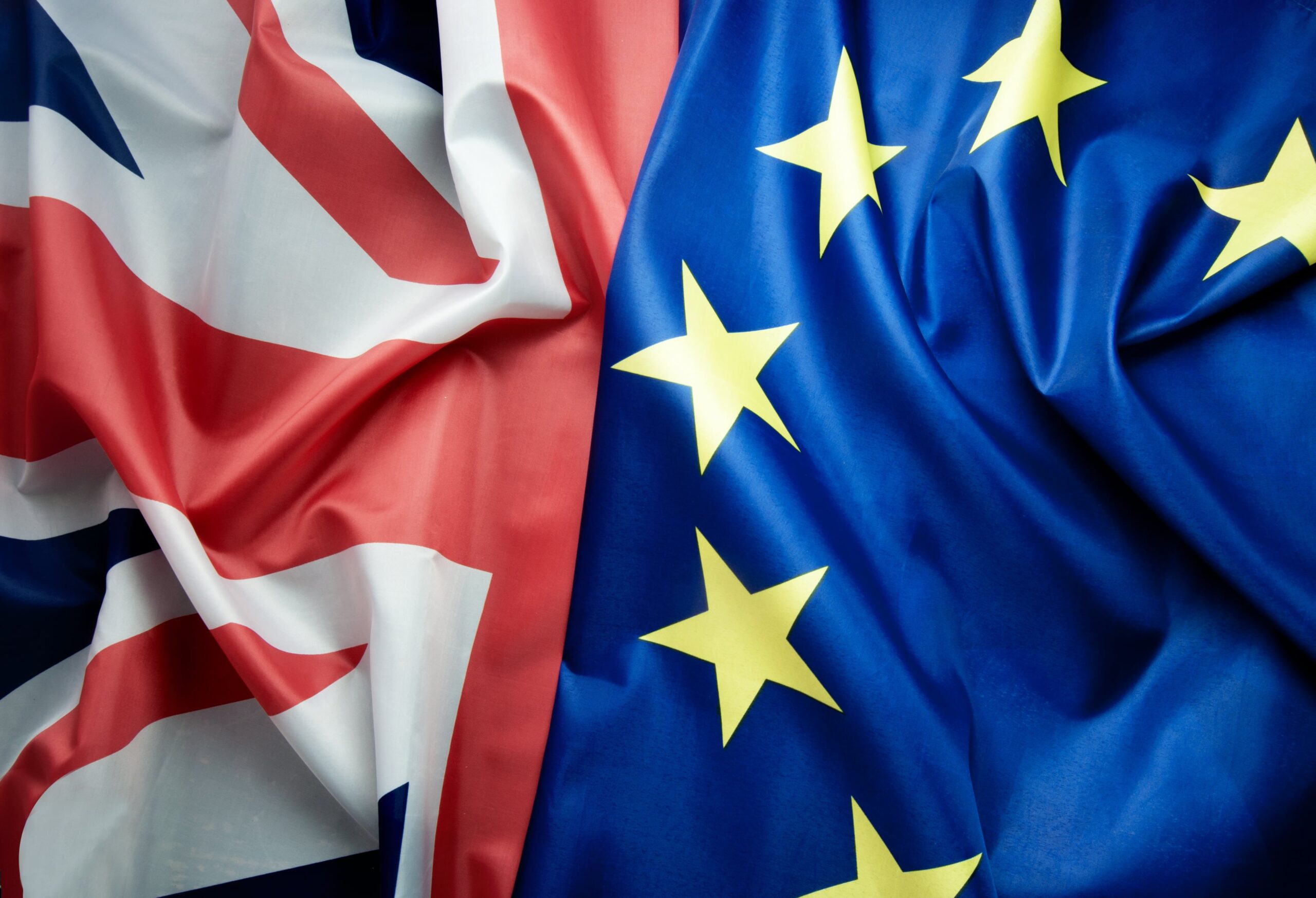Update on UK-EU Relationship
Our final update on the relationship between the UK and EU in a post-Brexit world, looking forward to the possibility of rapprochement and the challenges that lie ahead.
Reviewing the Trade and Cooperation Agreement
Along with the Withdrawal Agreement, the Trade and Cooperation Agreement (TCA) sets out the terms governing the relationship between the UK and the EU following Brexit, as negotiated by former Prime Minister Boris Johnson’s Conservative government in 2020. The TCA is set to be reviewed in 2025 or 2026 (most likely the latter), and it has been suggested that this might present an opportunity to reset the currently fractious relationship between the two parties.
Leader of the Opposition, Sir Keir Starmer, has stated his belief that the TCA in its current form is “too thin”, and that, if he is elected Prime Minister at the next general election, he will look to secure a “closer trading relationship” and a “better deal” for Britain. Starmer has been keen to emphasise that this does not mean re-joining the EU’s single market or customs union, but rather using the review to make changes to the TCA which will encourage and allow for greater cooperation between the UK and EU.
However, any such changes would require the consent of the EU, and a report conducted by UK In A Changing Europe indicates that such consent might be difficult to obtain. EU Vice-President Maroš Šefčovič has already said that the review “does not constitute a commitment to reopen the TCA”. If the UK, whether under Labour or otherwise, wants to convince the bloc to expand the agreement to include trade easements, then it will likely have to compromise on providing greater opportunities for youth mobility and security cooperation, as desired by the EU.
A new European Union?
A report jointly commissioned by France and Germany has set out potential plans for restructuring the EU. The bloc currently consists of 27 members, but that is expected to increase to as high as 36, with a number of candidate members on the waiting list and a general desire for expansion following the Russian invasion of Ukraine.
“It is clear the enlargement of the EU is in all our interests,” commented Anna Lührmann, Germany’s Europe minister. “We must therefore start now to do everything possible to ensure that the EU is ready for this enlargement.”
One recommendation which may be of particular relevance to the UK would involve the EU being split into four concentric circles, with those member states in the innermost circle having the strongest levels of integration, while the outermost circle would only involve political cooperation, without the need to be bound by EU law.
Those looking to thread the needle between remaining independent of EU jurisdiction and the single market while engaging in cooperation on matters such as security, like Labour’s Keir Starmer, might see this as an ideal solution. Starmer met with French president Emmanuel Macron earlier this month, and told him that, assuming he wins power, he wants to build an “even stronger” relationship between the two countries. It remains to be seen whether this involves the UK entering into this outermost circle of EU integration, although any such move runs the risk of being seen as negating the 2016 referendum and would need to be handled with care.
Channel Crossings
In March 2023, Prime Minister Rishi Sunak pledged to “stop the boats”, by introducing strict legislation which would discourage migrants from arriving in the UK on small boats. While the Illegal Migration Act received Royal Assent in July, the average number of migrants crossing the Channel per boat hit a new monthly high in August, with 5,359 people making the journey on 102 vessels – an average of around 53 migrants per boat. August also saw a new daily high for migrants arriving via small boat, with 756 arriving on 10 August – although this was then surpassed on 2 September, when 872 migrants arrived aboard 15 vessels.
We have already covered the Illegal Migration Act (or, as it was then, the Illegal Migration Bill) in two previous updates – here and here – but it would appear that Sunak’s proposed solution to these crossings is yet to bear fruit. Sir Keir Starmer has confirmed that Labour are seeking a deal with Europol, in a bid to stop smuggling gangs bringing people into the UK via small boat. “It ought to be the UK government who decides who comes to the UK,” he said. “But at the moment, because the government has lost control, it is those that are running the gangs that are putting people in boats to cross the channel.”
It is anticipated that any such returns agreement would involve the UK accepting some migrants from the EU. Immigration Minister Robert Jenrick claimed that such an agreement would mean that “Britain will be forced to take more than 100,000 illegal migrants from the safety of Europe each year”. This “100,000” figure appears to be based on proposed EU rules, which set migrant quotas for member states according to population size and economic strength. Sir Keir has retorted that any such agreement would not be bound by these EU rules, given that the UK is not a member state.
Key dates
- Late 2023: new requirements for Export Health Certificates for EU imports into Great Britain are subject to further delay – a new date will be confirmed.
- Late 2023: Phytosanitary Certificates and physical checks on most remaining SPS goods (such as meat and plants) at Great British border are subject to further delay – a new date will be confirmed.
- Late 2023: Safety and Security declaration requirements on EU imports into Great Britain are subject to further delay – a new date will be confirmed.
- 31 December 2025: end of grace period for facilitating entry of veterinary medicines from Great Britain into Northern Ireland.

